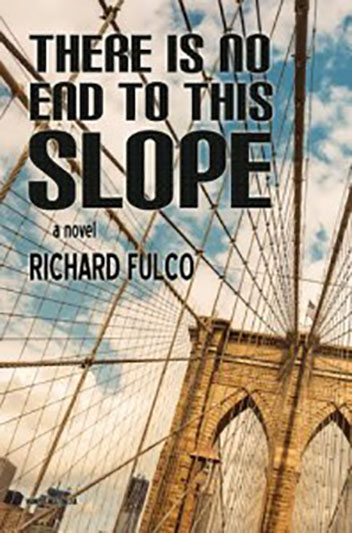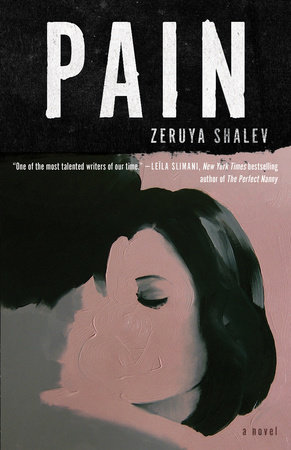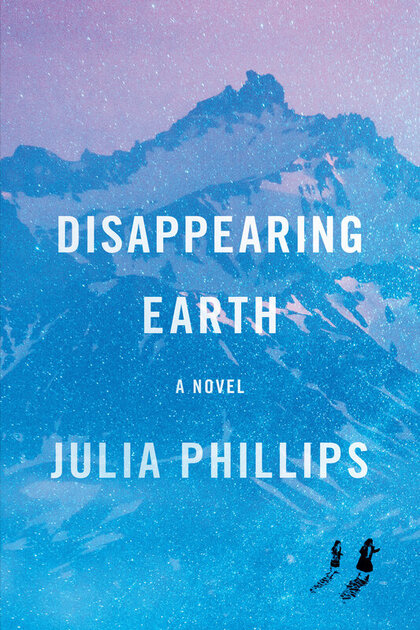 Although “There Is No End to This Slope” is his first novel, Richard Fulco is a veteran of the Brooklyn literary scene. Fulco received an MFA in Playwriting from Brooklyn College. His plays have been presented at The New York International Fringe Festival, The Playwrights’ Center, The Flea, Here Arts Center, Chicago Dramatists and the Dramatists Guild. He has also written several short stories and reviews appearing in The Brooklyn Rail, the Daily Vault and more. He is also founder of an online music magazine titled Riffraf. Considering Fulco’s strong background in theater, it is no wonder that his main character, John Lenza finds theater so inspiring: as depicted as a young boy, Lenza put on productions of self-written plays for his family and kids around the neighborhood. In the present-tense of the novel he is in his late thirties and sells textbooks to schools. He hates his job, he hates his wife, and still wallows in his own guilt streaming from the accidental death of his high school girlfriend, Stephanie twenty years prior. In adulthood, Lenza seems to have lost his creative inspiration. He is consumed by his memories of Stephanie, which imprison him and render him unable to walk his true path in life. The novel deals with deeply set themes such as self-inflicted emotional pain, guilt, mourning, and death through this main character, John Lenza. As a reader I found myself heavily conflicted, trying to decide whether to cheer John Lenza on to success and happiness, or to resent him for his poor choices. In this way, Fulco draws the reader into the slippery downward spiral of John Lenza throughout “There Is No End to This Slope.” When asked what piece of advice he would give to his main character, John Lenza, Fulco said he would explain that life is mostly about failure:
Although “There Is No End to This Slope” is his first novel, Richard Fulco is a veteran of the Brooklyn literary scene. Fulco received an MFA in Playwriting from Brooklyn College. His plays have been presented at The New York International Fringe Festival, The Playwrights’ Center, The Flea, Here Arts Center, Chicago Dramatists and the Dramatists Guild. He has also written several short stories and reviews appearing in The Brooklyn Rail, the Daily Vault and more. He is also founder of an online music magazine titled Riffraf. Considering Fulco’s strong background in theater, it is no wonder that his main character, John Lenza finds theater so inspiring: as depicted as a young boy, Lenza put on productions of self-written plays for his family and kids around the neighborhood. In the present-tense of the novel he is in his late thirties and sells textbooks to schools. He hates his job, he hates his wife, and still wallows in his own guilt streaming from the accidental death of his high school girlfriend, Stephanie twenty years prior. In adulthood, Lenza seems to have lost his creative inspiration. He is consumed by his memories of Stephanie, which imprison him and render him unable to walk his true path in life. The novel deals with deeply set themes such as self-inflicted emotional pain, guilt, mourning, and death through this main character, John Lenza. As a reader I found myself heavily conflicted, trying to decide whether to cheer John Lenza on to success and happiness, or to resent him for his poor choices. In this way, Fulco draws the reader into the slippery downward spiral of John Lenza throughout “There Is No End to This Slope.” When asked what piece of advice he would give to his main character, John Lenza, Fulco said he would explain that life is mostly about failure:
“Either accept that or do yourself in like Virginia Woolf, Sylvia Plath, Paul Celan. Make a choice. There’s nothing more paralyzing than languishing in limbo. Purgatory is the real hell… Samuel Beckett knew the score. He’d have a great deal to say to John Lena. Beckett could set him straight, but Lenza would never listen to him.”
This is an interesting, and deeply provocative read that reminds readers of the incredible wonder-wheel that is human feeling: strength, courage, grief, agony, and misery (to name a few).



